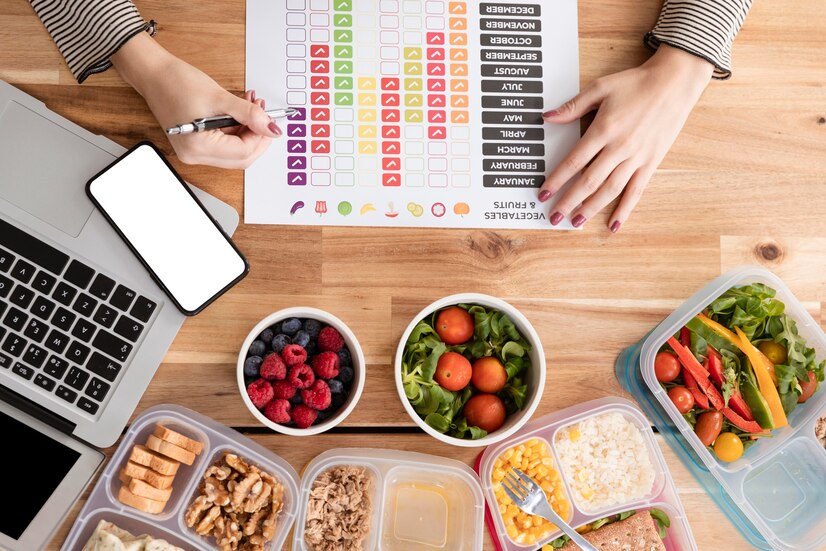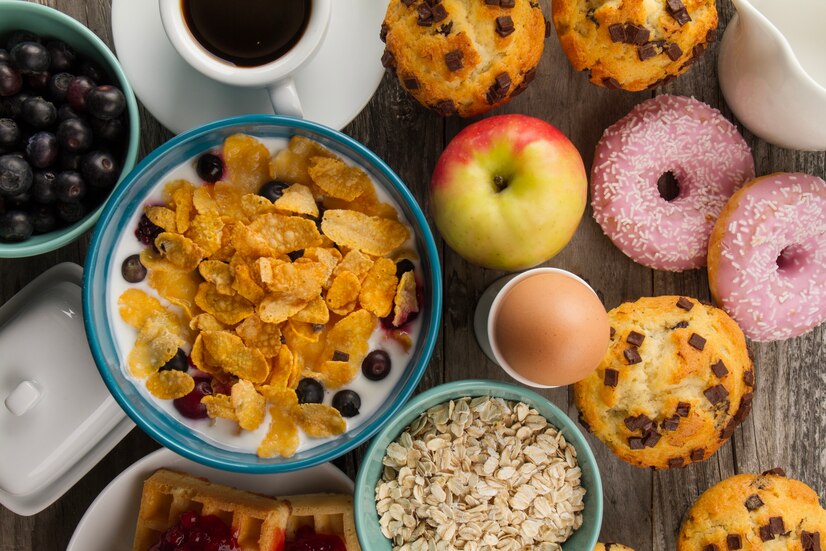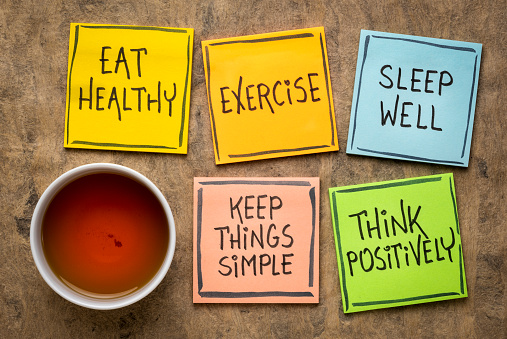The Ultimate Guide 101: Top Healthy Ways to Gain Weight

Have you ever struggled to put on weight? Maybe you see friends effortlessly maintain their muscle mass, while you seem stuck, no matter how much you eat. Well, you’re not alone. Gaining weight can be just as challenging as losing it but achieving it in a healthy way is key.
Many people focus on weight loss, but for some, narrowing down healthy ways to gain weight is just as important. Whether you’re naturally thin or struggle to build muscle, achieving a healthy weight can significantly improve your overall health and fitness. If you are someone who wants to learn how to gain a healthy weight and have tried different ways but failed, we’ve got you covered!
The Weight Gain Struggle: Why it’s More Than Just “Eat More”
The quest for a healthy weight gain can be surprisingly challenging. Unlike its counterpart, weight loss, there seems to be a misconception that simply eating more will do the trick. But the reality is, healthy weight gain requires a strategic approach that considers various biological and lifestyle factors.
Here’s Why Healthy Weight Gain isn’t as Straightforward as it Seems:
Metabolic Roadblocks:
- BMR factor: Remember, your Basal Metabolic Rate (BMR) is the baseline calorie burn for basic functions. People with naturally higher BMRs might find it easier to create a calorie surplus for weight gain. However, those with a lower BMR may struggle to consume enough calories without exceeding their body’s needs and packing on unhealthy weight.
- The Thermic Effect of Food (TEF): Did you know digesting food burns calories? This process, called the TEF, contributes to your overall calorie expenditure. However, protein has a higher TEF compared to carbohydrates and fats. Therefore, focusing on protein-rich foods can lead to a slightly higher calorie burn, even during digestion.
Hormonal aspects:
- Leptin and Ghrelin Rollercoaster: Leptin, the “satiety hormone,” signals fullness, while ghrelin, the “hunger hormone,” stimulates appetite. These hormones play a crucial role in regulating your calorie intake. Stress, sleep deprivation, and certain medical conditions can disrupt this delicate balance, making it harder to feel satisfied and leading to overeating.
Lifestyle:
- Busy scheduled lifestyle: Hectic schedules often translate to grabbing convenient, calorie-dense processed foods. While these might pack on the calories, they often lack the essential nutrients needed for muscle building and overall health.
- The Cardio challenge: Exercise is fantastic for overall health, but excessive cardio can hinder your weight gain goals. Cardio burns calories, and if you’re not careful, it can create too large a calorie deficit, making it difficult to build muscle mass.
Why Is It Important to Follow Healthy Ways to Gain Weight?
Healthy weight gain focuses on building muscle and improving overall health, not just adding fat. It prioritizes nutrient-dense foods that nourish your body and fuel your activities. This approach leads to increased strength, improved metabolism, and a healthier physique.
Benefits of Healthy Weight Gain:
- Improved athletic performance: Gaining muscle mass translates to greater strength, endurance, and power.
- Enhanced body composition: A healthy weight gain involves building muscle, which burns more calories at rest.
- Boosted confidence: Feeling strong and healthy can significantly improve your self-esteem.
- Better recovery from illness or injury: Muscle mass aids in healing and supports a stronger immune system.
When to Consider Healthy Weight Gain:
- Doctor’s recommendation: A doctor can assess your body composition and overall health to determine if weight gain is beneficial.
- Impact on daily activities: If your weight affects your ability to perform daily tasks or participate in activities you enjoy, it might be time to consider healthy weight gain.
Setting Realistic Goals
The first step is setting realistic goals when learning about how to gain weight in a healthy way. Aim for gradual and sustainable weight gain, typically 0.5 to 1 kilogram (1-2 pounds) per week. Consider your body type, activity level, and overall health when determining your target weight.
Now, let’s understand the specifics of how to put on weight healthily:
But let’s begin with Understanding Your Body and Its Needs to Gain Weight
Different body types have varying metabolic rates and muscle-building potential. The three main body types are:
- Ectomorph: Typically, thin with a fast metabolism and difficulty gaining weight.
- Mesomorph: Athletic build with a naturally muscular physique and good muscle-building potential.
- Endomorph: Rounder body shape with a slower metabolism and tendency to store body fat more easily.
While these categories provide a general framework, it’s important to remember that body types can be a mix. Regardless of your body type, understanding your body’s needs is crucial for creating a personalized approach and learning how to gain healthy weight.
Top 10 Tips for Healthy Weight Gain:
1. Prioritizing Nutrient-Dense Foods to Gain Weight
Building a strong foundation for weight gain starts with a balanced, healthy diet to gain weight rich in nutrient-dense whole foods. Focus on consuming enough calories throughout the day to create a calorie surplus (consuming more calories than you burn). Here’s a breakdown of essential nutrients:
- Macronutrients: These provide your body with energy. They include:
- Protein: Crucial for building and repairing muscle tissue. Aim for 1.5-2 grams of protein per kilogram of body weight daily. Sources include lean meats, poultry, fish, eggs, dairy products, legumes, and nuts.
- Carbohydrates: Provide readily available energy. Choose some complex carbs like whole grains, fruits, and starchy vegetables over refined carbs like white bread and sugary drinks.
- Healthy Fats: Essential for hormone production, satiety, and nutrient absorption. Include some healthy fats from sources like avocados, nuts, seeds, olive oil, and fatty fish.
- Micronutrients: Vitamins and minerals are vital for overall health and function. Consume a proper variety of fruits, vegetables, and whole grains to ensure you get a good range of micronutrients.
Incorporating Nutrient-Dense Foods into Your Meals to Gain Weight in a Healthy Way
Here are some ideas for incorporating these foods into your healthy diet to gain weight:
| Meal | Vegetarian Option | Non-Vegetarian Option | Estimated Calories |
| Breakfast | Smoothie with spinach, banana, protein powder, and nut butter | Scrambled eggs with whole-wheat toast and smoked salmon | 500-600 |
| Lunch | Lentil soup with whole-wheat bread and avocado slices | Grilled chicken breast sandwich on whole-wheat bread with sweet potato fries | 600-700 |
| Snack 1 | Cottage cheese with berries and a sprinkle of granola | Greek yoghurt with mixed nuts and dried fruit | 200-300 |
| Dinner | Tofu stir-fry with brown rice and mixed vegetables | Baked salmon with quinoa and roasted Brussel sprouts | 700-800 |
| Snack 2 | Hard-boiled eggs and sliced vegetables | Protein shake with banana and nut butter | 200-300 |
Remember, portion control is key. While aiming for a calorie surplus, avoid overeating, which can lead to unhealthy weight gain.
2. Optimize Meal Timing to Put Weight in a Healthy Way
Strategic meal timing can support weight gain and muscle recovery. Here are some tips that help with how to gain weight in a healthy way:
- Eat 3-4 meals and 2-3 snacks throughout the day. This helps with maintaining a steady supply of nutrients for muscle building and prevents excessive hunger.
- Consume a pre-workout meal rich in carbs and protein 30-60 minutes before your workout to provide energy.
- Have a post-workout meal containing protein and carbohydrates within 30 minutes after your workout to maximize muscle recovery and growth.
3. Incorporate Calorie-Dense Snacks
Stock your pantry with calorie-rich, healthy snacks like nuts, nut butter, dried fruits (dates, raisins), and avocados. These are convenient, nutrient-packed options to boost your calorie intake. Here are some more effective ideas:
- High-protein homemade trail mix with nuts, seeds, and dried fruit.
- Protein smoothie with banana, nut butter, and spinach.
- Whole-wheat crackers with mashed avocado and cheese.
- Greek yoghurt with berries and granola.
- Hard-boiled eggs.
4. Do’s and Don’ts of Healthy Weight Gain
5. Strength Train is Key
Strength training is the ultimate key to building muscle mass and promoting healthy ways to gain weight. Here’s a basic beginner-friendly routine you can do at home or the gym:
Home Workout:
- Bodyweight squats (3 sets of 10-12 repetitions)
- Push-ups (modified versions available) (3 sets of as many repetitions as possible)
- Lunges (3 sets of 10 repetitions per leg)
- Rows with water bottles (3 sets of 10-12 repetitions)
- Plank (3 sets of 30-60 seconds hold)
Gym Workout:
- Squats (3 sets of 8-12 repetitions)
- Leg press (3 sets of 8-12 repetitions)
- Chest press (3 sets of 8-12 repetitions)
- Dumbbell rows (3 sets of 8-12 repetitions)
- Shoulder press (3 sets of 8-12 repetitions)
- Bicep curls (3 sets of 10-12 repetitions)
- Triceps extensions (3 sets of 10-12 repetitions)
Remember: Proper form is of utmost importance to prevent injury. Start with some lighter weights and gradually increase them as you get stronger. Consider consulting a certified personal trainer for guidance on creating a personalized workout plan.
6. Pro Tips and Meal Ideas for Busy Working Professionals – How to Gain Healthy Weight
We understand that maintaining an approach that helps with healthy ways to gain weight plan can be challenging with a busy work schedule. Here are some pro tips and readily available food options to help you abide by the plan and stay on track:
Planning and Prepping is Key:
- Meal prep on weekends: Dedicate a few hours on weekends to prepping healthy meals and snacks for the week. This saves you time during busy workdays and ensures you have nutritious options readily available.
- Portion control containers: Invest in portion control containers to pre-pack your meals and snacks. This helps you avoid overeating and stick to your calorie goals.
- Healthy office staples: Keep a stash of healthy, non-perishable snacks at your desk, such as nuts, seeds, dried fruit, and whole-grain crackers. This way, you have healthy options on hand when hunger strikes.
Easy Meal and Snack Ideas:
- Breakfast on the go: Pre-portion overnight oats with protein powder, chia seeds, and berries. Alternatively, pair a hard-boiled egg with a whole-wheat bagel and nut butter.
- Lunchtime power bowls: Fill a container with quinoa, grilled chicken or tofu, roasted vegetables, and a light vinaigrette dressing. Leftovers from dinner also make quick and convenient lunches.
- Post-workout refuel: Stock your gym bag with a protein shake or a protein bar made with natural ingredients.
- Healthy work snacks: Keep sliced fruits and vegetables like apples, carrots, and bell peppers readily available for a refreshing and healthy snack.
- Travel-friendly options: When travelling for work, pack healthy snacks like trail mix, protein bars, and rolled-up whole-wheat tortillas with nut butter.
Utilize Healthy Convenience Foods:
- Frozen fruits and vegetables: Frozen options are a great way to ensure you have readily available fruits and vegetables for smoothies, stir-fries, or roasting.
- Canned fish: Canned tuna, salmon, or sardines are excellent protein and healthy fat sources. They’re shelf-stable and perfect for quick meals or snacks.
- Pre-cooked rotisserie chicken: Shred leftover rotisserie chicken for salads, sandwiches, or wraps. This is a convenient protein source for busy workdays.
- Healthy pre-made options: Many grocery stores offer pre-made salads, wraps, and protein bowls, which can be a healthy and time-saving option. Look for options with whole grains, lean protein, and a variety of vegetables.
7. Why it is Most Important to Prioritize Quality Sleep to Gain Healthy Weight
Sleep is of utmost importance for muscle recovery and growth. Aim for a solid 7-8 hours of quality sleep each night. Here are some tips for better sleep:
- Establish a regular sleep schedule and stick to it, even and especially on weekends.
- Create a relaxing bedtime routine to wind down before sleep.
- Make sure your bedroom is dark, quiet, and cool.
- Limit screen time before bed. The blue light emitted from electronic devices is proven to disrupt sleep
8. Hydration for Weight Gain
Water is essential for various bodily functions, including muscle growth and nutrient absorption. Aim to drink plenty and enough water throughout the day to stay adequately hydrated. Here are some tips:
- Carry a reusable water bottle with you and sip regularly.
- Monitor your urine colour. Aim for pale yellow, indicating proper hydration.
- Include hydrating beverages like water, unsweetened tea, and low-fat milk in your healthy diet to gain weight.
9. Track Your Progress
Tracking your progress is vital for evaluating your weight gain plan’s effectiveness. Here’s how to gain healthy weight while also keeping track of progress:
- Monitor your weight: Weigh yourself regularly (once or twice a week) to track weight gain progress.
- Body composition analysis: Consider getting a body composition analysis done to assess changes in muscle mass and body fat percentage.
- Strength gains: Track the amount of weight you can lift during your workouts to monitor strength improvement.
Based on your progress, adjust your calorie intake or workout routine as needed. If you find it challenging to make progress, consult a registered dietitian or certified personal trainer for personalized guidance.
10. Accelerate Your Progress While Learning How to Gain Weight in a Healthy Way
While the focus of this blog is to highlight sustainable and healthy ways to gain weight, here are some effective and additional tips you can incorporate to potentially accelerate your progress, all while staying safe and healthy:
Increase Workout Intensity:
- Progressive overload: Gradually increase the quantity of weight you lift or the number of repetitions you perform during your workouts. This challenges your muscles and promotes further growth.
- High-Intensity Interval Training (HIIT): Short bursts of intense exercise followed by rest periods can be a time-efficient way to boost calorie burn and muscle growth. However, ensure proper guidance before starting HIIT, especially if you’re new to exercise.
Optimize Recovery:
- Active recovery: On rest days, include low-impact activities like walking, yoga, or light swimming to promote muscle recovery and blood flow.
- Prioritize sleep: Aim for a total 8-9 hours of quality sleep each night. Sleep deprivation hinders muscle growth and recovery.
- Manage stress: Chronic stress certainly impacts your weight gain goals negatively. Practice relaxation techniques like mindfulness, deep breathing, or meditation to manage stress levels.
Consider Supplements (Consult a Doctor First):
- Protein powder: A protein shake after workouts certainly proves to be a very convenient way to increase your daily intake of protein and support muscle recovery.
- Creatine monohydrate: This natural supplement can slightly enhance muscle growth with strength training. However, consult your doctor before starting creatine, especially if you have any health concerns.
Things to Remember:
- These are just suggestions, and it’s crucial to listen to your body. Don’t push yourself too hard and prioritize proper form during exercise to avoid injury.
- Always consult a dietician or doctor before adapting to any new supplements or significantly increasing your workout intensity. The dietician can advise you based on your individual needs and health history.
Conclusion
Healthy weight gain is a unique journey that requires dedication and consistency. By following the strategies outlined in this blog that help you learn how to gain weight in a healthy way, you can build muscle and improve your overall health, alongside achieving a healthy weight that supports an active and fulfilling lifestyle. The key is to emphasis on nutrient-dense foods, incorporate strength training, prioritize sleep, and be patient with your progress. With the right approach, it is possible to gain weight in a very healthy and sustainable way!
FAQs on Weight Gain in a Healthy Way
Is it okay to gain weight even if some of it is fat?
Absolutely! When gaining weight in a healthy way, some fat gain is inevitable alongside muscle growth. Aiming for a balanced approach that prioritizes nutrient-dense foods and strength training will help build muscle while minimizing excess fat storage.
I have a naturally sweet tooth. How can I incorporate healthy sweets into my weight gain plan?
Satisfy your sweet tooth with healthy alternatives! Make homemade smoothies with fruits, protein powder, and a splash of natural sweeteners like honey. Bake muffins or cookies with whole-wheat flour, mashed banana for sweetness, and chopped nuts for added protein and healthy fats. Enjoy a square of dark chocolate which contains 70% cacao or higher for a dose of antioxidants and a satisfying treat. Remember, moderation is key!
I’m worried about feeling sluggish after eating a bigger meal. What can I do?
Feeling sluggish after meals can be caused by blood sugar spikes and crashes. To avoid this, focus on meals with a balanced combination of protein, complex carbohydrates, and healthy fats. This helps regulate the overall blood sugar levels and provides sustained energy. Staying hydrated throughout the day certainly helps to aid digestion and improve overall well-being.
I travel frequently for work. How can I maintain my healthy weight gain goals on the road?
Sticking to your plan while travelling is achievable! Pack some healthy snacks like nuts, dried fruit, and high-protein bars. Many hotels offer breakfast buffets and prioritize whole grains, eggs, yoghurt, and fresh fruit. Look for healthy restaurant options like grilled chicken or fish with brown rice and vegetables. Utilize grocery delivery services in your hotel room to stock up on fruits, yogurt, and pre-cut vegetables for easy snacking.













